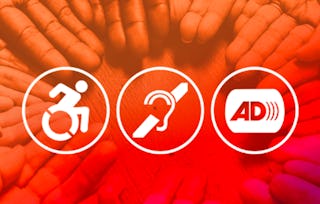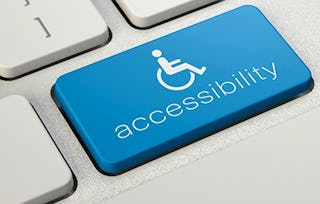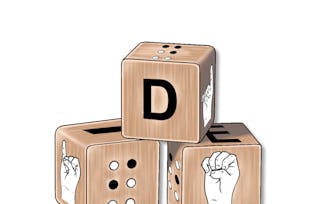The goal of this course is to promote equal opportunity and the full participation of students with disabilities in higher education by helping participants advance their awareness of the meaning of accessibility in education. Participants will gain competence and confidence in working with students by focusing on legislation, universal design, and assistive technologies. Thank you to Abbas (Bobby) Husain Quamar, Graduate Student Researcher in the Department of Rehabilitation Science and Technology at the University of Pittsburgh, for his contributions to the course.

Disability Awareness and Support

Disability Awareness and Support

Instructor: Mary Goldberg
Access provided by Syrian Youth Assembly
15,110 already enrolled
332 reviews
Skills you'll gain
- Case Studies
- Disabilities
- Student Support and Services
- Instructional Design
- Web Content Accessibility Guidelines
- Higher Education
- Education Software and Technology
- Differentiated Instruction
- Educational Materials
- Adaptive Equipment
- Diversity Awareness
- Curriculum Development
- Skills section collapsed. Showing 7 of 12 skills.
Details to know

Add to your LinkedIn profile
See how employees at top companies are mastering in-demand skills

There are 4 modules in this course
Students come to our higher education classrooms with a wide variety of knowledge, skills, talents, and abilities. As educators, we want all students to be successful and feel supported in an inclusive learning environment. Many of our students have disabilities that they may or may not disclose to faculty and staff. Typically, the process of providing required documentation and identifying appropriate accommodations is a collaborative effort between the student and the disability services staff. Faculty are not a part of this process and may not be aware of the rationale or implications. In this module, we begin with an introduction to students with disabilities and the process of obtaining services and academic accommodations. This module also highlights key United States and international legislation that relates to higher education students with disabilities.
What's included
15 videos6 readings1 assignment2 discussion prompts
In this module, we describe the process used for deciding on reasonable accommodations for students with disabilities and the role of Disability Services in making this determination. We identify specific accommodations that students with disabilities might need to participate in university life.
What's included
9 videos4 readings1 assignment1 peer review1 discussion prompt
In the first two modules, we reviewed disability definitions and legislation, disability services, accommodations, and assistive technologies you might find on your college campus. In this module, we focus on applying universal design principles to the design and development of accessible instruction and course materials.
What's included
6 videos1 reading1 assignment
Please read the following case scenarios and respond to the corresponding questions on the discussion boards.
What's included
1 reading1 assignment4 discussion prompts
Instructor

Offered by
Why people choose Coursera for their career

Felipe M.

Jennifer J.

Larry W.

Chaitanya A.
Learner reviews
- 5 stars
73.11%
- 4 stars
20.54%
- 3 stars
4.22%
- 2 stars
0.90%
- 1 star
1.20%
Showing 3 of 332
Reviewed on Jun 10, 2018
Very good course that anybody out of the filed can understand it. It is light and easy to complete. And contain a various resources to enhance you knowledge.
Reviewed on Nov 1, 2022
well framed for a comprehensiveness on disability awareness. still ample scope on inclusion of psychosocial disability.
Reviewed on Jun 11, 2022
Informative, Educative and  Practical knowledge for Professionals. Good instruction and great discussion groups.
Explore more from Social Sciences

University of Illinois Urbana-Champaign

Knowledge Accelerators

University of Minnesota

University of Cape Town
¹ Some assignments in this course are AI-graded. For these assignments, your data will be used in accordance with Coursera's Privacy Notice.

